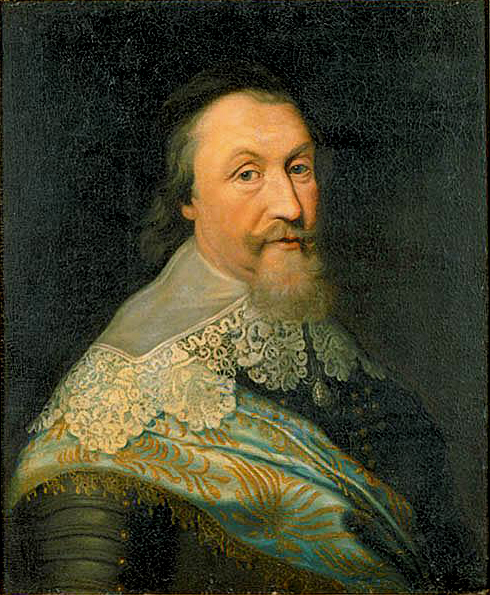Axel Oxenstierna
Axel was a high ranking nobleman who developed a solid working relationship with Gustavus Adolphus. After Gustavus passed away in 1632, Axel then took over the leadership of the Thirty Years War for Sweden.
Axel fully supported the power of the monarchy, and though he was known as Sweden’s most important nobleman, he did not see eye to eye with other noblemen who felt an extension of monarchical power was at their expense. He was a monarchist in spite of being responsible for the Accession Charter which Gustavus had to sign in 1611.
Once Gustavus was killed at Lutzen in 1632, Axel took full command over the Swedish forces in the Thirty Years War. However, significant problems arose as Sweden was lacking money, the German Protestant alliance was hard to keep going and Axel was aware of Richelieu in France who seemed (according to Axel) to be treading on Sweden. There were also some opinionated generals to deal with like General Horn, Johan Banner and Karl Gustav Wrangel. It is clear that Axel was able to control these issues due to his natural skills.
During Christina’s regency, Axel was Sweden’s ruler and his Regency of Five featured his brother and cousin, meaning there would always be a majority in the Five supporting him.

Axel drew up the Form of Government in July 1634 and this added a modern context to Sweden’s administration. However, Christina did not trust the document due to her view that it could increase Axel’s power at her expense. She also believed that Axel was simply taking advantage of her youth and gender.
Two years later, Axel went back to Sweden after being in Germany and directing the Swedish input into the Thirty Years War. Since then Axel and Christina’s relationship began to weaken and when Christina came of age in 1644, she could assert her authority over Axel. Seeing as he was a monarchical power supporter he could not oppose what she was trying to do. The following decade up to 1654 is occasionally known as the ‘Ten Year Rule’ which refers to Christina’s new assertion and making decisions for her country all at Axel’s expense.
The biggest debate was over who would be Christina’s successor - she was determined to marry Charles Gustav, however this was not going to happen so Christina stated she would not marry and Charles Gustav would still succeed her. On the other hand, Axel thought the government should be informed about this but Christina disagreed.
The main concern for the Council was the working relationship which had been produced when Gustavus was the Swedish king - they worried she was breaking it down. Axel felt Christina’s approach could drive Sweden to overall monarchical rule, meaning there could be a trust breakdown. The other issue was the lack of proof for Charles’ suitability as a candidate for Sweden’s throne.
The issue of resumption was also affecting the crown and nobility’s harmony. Resumption was the process where the monarchy tried to buy former royal land back which had been cheaply sold to the nobility, in order that the Thirty Years War could be funded properly. A lot of noblemen were rewarded from this sale and so kept a close watch over what they saw as rightfully theirs.
Christina was conscious that if she was seen to be moving in the lower estates’ direction, it would be a worry for Sweden’s much smaller nobility. The lower estates through the Diet ordered resumption in 1650 along with a limit on noble power.
Christina was in favour of this and used the support to persuade the nobles to side with her successor choice. When they agreed, she went back over to their side but a law was declared in 1652 that limited a free peasant’s extra labour on ex-royal land. Although this was very small in comparison to what the nobility were concerned could be passed. The expected relationship between the crown and nobles was restored after this event. Axel had no choice but to accept Christina’s assertion of her power.
Both Axel and Christina continued with a ‘normal’ relationship from 1652 until Axel’s death in 1654. As Axel approached death, he had managed to maintain Sweden’s nobility power despite the complicated circumstances he was working in.
MLA Citation/Reference
"Axel Oxenstierna". HistoryLearning.com. 2025. Web.
